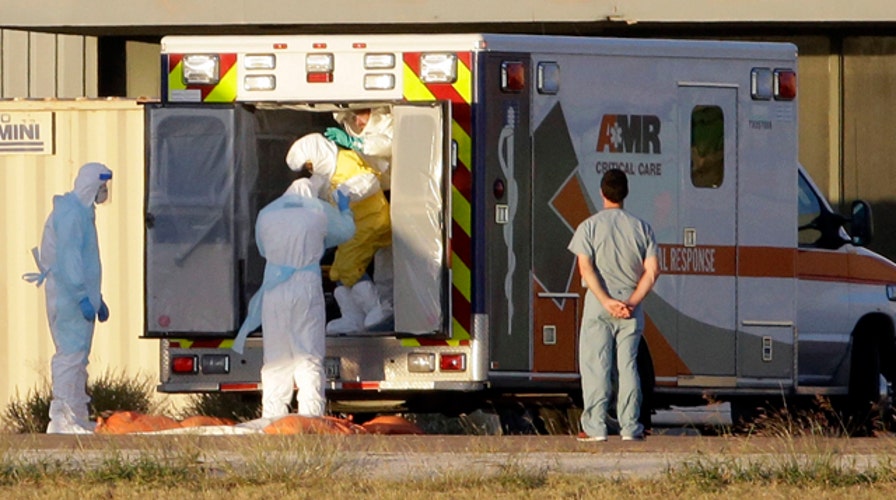Expert: Ebola has expanded beyond a public health problem
Texas Children's Hospital's Dr. Peter Hotez reacts to president's decision to tap Ron Klain as 'Ebola czar'
President Obama on Saturday repeated his argument against a travel ban on West Africa where Ebola is an epidemic and urged Americans not to give into hysteria about the deadly virus, saying the U.S. is not dealing with a similar outbreak.
“We have to be guided by the science,” the president said in his weekly radio and online address. “We're a nation of more than 300 million people. To date, we've seen three cases.”
The address is another attempt by the president and his administration to assure the public that officials have procedures in place and are taking further steps to avoid an Ebola outbreak like the one in West Africa that so far this year has killed more than 4,500 people.
On Friday, the president appointed former top White House adviser Ron Klain to lead the U.S. response to the virus, amid the growing concern that Ebola is spreading beyond the three confirmed cases in Dallas.
On Saturday, the president also called on Americans across the country to help stop the hysteria.
“Meeting a public health challenge like this isn't just a job for government,” he said. “All of us -- citizens, leaders, the media -- have a responsibility and a role to play. This is a serious disease, but we can't give in to hysteria or fear because that only makes it harder to get people the accurate information they need.”
As Obama sought to reassure anxious Americans, U.S. officials were still working to contain the fallout from the Ebola cases identified so far in the United States, rushing to cut off potential routes of infection for those who may have come into contact with individuals who contracted the virus.
Some health experts insist now is not the time to start a travel ban, especially given the disease is still extremely contained in the U.S. and that the only people who have caught it here are two Dallas health care workers who cared for an Ebola patient who later died.
Their key objection is that such a ban could prevent needed medical supplies, food and health care workers from reaching Liberia, Sierra Leone and Guinea, the West Africa countries hit hardest by the epidemic. Without that aid, the expert say, the deadly virus might spread to wider areas of Africa, making it even more of a threat to the U.S. and the world.
In addition, preventing people from the affected countries from traveling to the U.S. could be difficult to enforce and might generate counterproductive results, such as people lying about their travel history or attempting to evade screening, they say.
Though it would be theoretically possible to get supplies and medical personnel into West Africa even while shutting down commercial air travel, in practice it would turn into a logistical nightmare, the experts say.
They also cite expenses and difficulties in chartering private aircraft or enlisting the military's assistance to transport thousands of personnel and huge amounts of supplies from around the world that are now moving freely on scheduled air travel.
Officials with the Centers for Disease Control and Prevention and the National Institutes of Health voiced similar objections at a congressional hearing this past week.
Screening measures now in place at U.S. airports allow arrivals from West Africa to be tracked.
Still, with little more than two weeks from midterm elections and control of the Senate at stake, the administration is facing mounting pressure on Capitol Hill to impose travel restrictions. Numerous Republicans have demanded a ban, as have a handful of Democrats, including at least two endangered incumbent senators, Kay Hagan of North Carolina and Mark Pryor of Arkansas.
House Speaker John Boehner, R-Ohio, also favors a ban.
Lawmakers have also proposed at least temporarily denying visas to Liberia, Sierra Leone and Guinea nationals. In addition, they've suggested quarantining U.S. citizens arriving here from those nations for at least 21 days, Ebola's incubation period, and limiting travel to West Africa to essential personnel and workers ferrying supplies.
The Associated Press contributed to this report.





